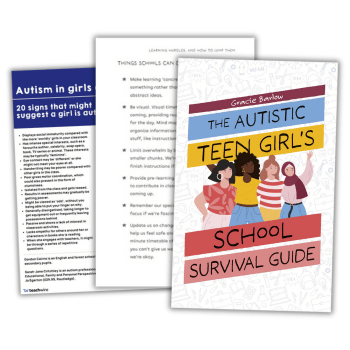Supporting mental health in schools – Promoting positive mental health and emotional wellbeing

How does mental health affect students in schools and what can school staff due to help? Find out here…

- by Teachwire
- Classroom expertise and free resources for teachers

Jump to a section…
- How does mental health affect students?
- Coronavirus: supporting children’s mental wellbeing
- Promoting positive mental health in schools
- Benefits of mental health education
- How to talk to children about mental health
- Building mental resilience
- Mental health resources for teachers
- What about staff wellbeing?
Key facts and student mental health statistics
According to national charity The Children’s Society, one in six children aged 5-16 is likely to have a mental health issue – in education terms, that’s five children in every classroom of 30.
Young people mental health statistics
- 75% of young people with mental health issues don’t get the help they need.
- 34% of children who get referred to NHS services aren’t accepted into treatment
So, what are the issues affecting young people? As the teen mental health statistics show, life isn’t always easy for teenagers and young people. They have to contend with figuring out their identity, friendships, home life and becoming more independent, but have also had to deal with the extra pressure of being isolated from friends and family due to coronavirus.
How does mental health affect students in schools?
While it’s not a teacher’s job to diagnose or ‘solve’ pupils’ mental health problems, there’s no denying that poor mental health can have a huge impact on how a child gets on with their education.
Plus, because children spend a huge amount of time in the classroom, it’s a large part of their lives.
Pupils battling with poor MH may be unable to concentrate. They may be easily distractible and find it difficult interacting with others. Multitasking may be difficult, and constructive criticism may be received poorly.
While you may not know what type of therapy a kid needs, or even what specific mental health problem they have, compassionate teaching can make a hugely positive difference to children’s wellbeing.
Below are some strategies which are reasonably easy to enact, but can make a huge difference to children who are struggling:
- Use a secret cue to let a child know when they need to refocus their attention.
- Assign a member of staff to regularly check in with the pupil and assess any changes in mood.
- Help pupils to write realistic, positive statements about their performance and future.
- Break large tasks down into small, achievable goals.
- Remind pupils regularly of their past accomplishments. Consider putting together a folder of work and memories for this purpose.
- Try to keep schedules and routines predictable and reliable.
- Incorporate physical activities into your day as much as possible.
Coronavirus: supporting children’s mental wellbeing
An NHS Digital survey undertaken in July 2020 showed that 50% of children with a probable mental health disorder worried that friends and family would catch Covid-19. 58% had trouble sleeping, while 29% reported feeling lonely often or always.
42% of 11 to 16 year olds said that lockdown had made their life either a little or much worse.
As inclusion expert Daniel Sobel puts it, we’ve all “collectively experienced the fatigue of social isolation and anxiety on literally a pandemic scale. All of us have undergone stressful situations with our families, irrespective of our living situation.”
As Daniel explains, whether children have SEN or not, the return to education is going to be a challenge for everyone. Here’s what he thinks schools need to concentrate on over the coming months to support children’s mental wellbeing:
Social reintegration
- Lockdown has interrupted children’s social learning so coming back into the school community and large group settings may cause them stress and anxiety.
- It’s important to focus on activities orientated around learning to interact with others again.
Check in
- Pre-empt phone calls from parents by calling home regularly for brief chats. Aim to contact the 20% most vulnerable and challenging homes.
Start small
- Start with a minimised timetable for six weeks, or build in more breaks throughout the day.
- Lower your expectations around learning and homework – it’s foolish to prioritise grades over child mental health and pupil wellbeing.
Aim for predictability
- Establish as much clarity, routine and predictability as possible. This will create an emotional calmness.
- Clarify with pupils what you’re learning, what’s been missed and what happens next.
Keep it simple
- Make sure vulnerable and challenging pupils know where they’re supposed to be and what they’re supposed to be doing. Do they understand what’s happening next, later, and in the future?
After witnessing that pupils were sad and missing out on having things to look forward to, headteacher Leanne Bridgwood decided to host monthly parties for all children who had recently celebrated their birthday.
After all, as she says, being ready to learn, in an environment where you feel safe and loved, is key.
Promoting positive mental health and emotional wellbeing in schools
So, how can you promote positive mental health in schools and how are schools tackling the teenage mental health crisis?
Providing mental health support in a school setting isn’t easy, especially when mental health provision is stretched to breaking point. Although the NHS has committed to expanding access to mental health services in educational establishments, there’s no magic fix-all solution.
However, the following cheap and easy-to-implement ideas by Susan Strachan are an excellent starting point:
- Make sure pupils have access to a member of staff who they can speak to in confidence, whether that’s a teacher, wellbeing officer or someone else.
- Find time to listen to pupils if they’re upset or distressed. This is one of the biggest things you can do and really makes a difference.
- Get to know your students. Use lunchtime duty to have a chat and find out more about particular pupils. At the start of the day greet children by name and ask what they got up to at the weekend.
- Knowing your pupils will allow you to notice changes in demeanour. In these situations, a quick conversation to ‘check in’ can be transformative.
- If possible, direct pupils with complex issues to an on-site professional counsellor.
- Communicate with other professionals outside of education who can help. Refer students to external organisations providing mental health provision if necessary.
- Make sure that information about a student is communicated to others, when relevant, so that everyone is informed and able to support them appropriately.
In 2019, the government launched one of the largest trials in schools to boost the evidence about what works to support wellbeing. Read more about it here.
Benefits of mental health education in schools
Teaching children social and emotional skills while they’re young will help them to manage their own wellbeing as they grow. It can also reduce bullying and poor classroom behaviour. By laying the foundations now, children are more likely to grow up to be successful and satisfied adults.
Ofsted even made changes to its common inspection framework to highlight the importance of personal development, behaviour, welfare and mental health education, mentioning specific components such as relationships, self-confidence and a positive mindset.
Although paying for training and extra pastoral staff to provide an emotional wellbeing service isn’t cheap, for Educating Essex star and principal Vic Goddard, supporting children’s mental health is a priority.
He says: “What all of us can and should do, is become expert at ‘noticing’. As my head of safeguarding says, “You don’t know if the ‘small’ thing you’ve noticed might be the final, tiny piece of the jigsaw that will help us to support a child in crisis”.”
As Sean Duggan, chief executive of the Mental Health Network notes in this blog post, there is good evidence that supporting mental health in schools is effective.
Another benefit of educating children around this topic is that it reduces the stigma surrounding it.
How to start a conversation with a young person about mental health
It can be tricky to talk to children about delicate issues. Maybe you don’t feel adequately trained, you’re nervous about saying the wrong thing, or you just don’t know how to start.
Trending
However, you’re in a great position to talk to children about their emotional health and wellbeing because you’re used to talking in a language they understand.
Children will open up better to an adult they are familiar with. This could be a TA or a member of playground staff. Try to initiate the conversation when you’re not in a rush. A relaxed environment where you can both sit at the same height can make a difference.
Begin by simply explaining why you are there and asking how they feel about what they did or said. You could say:
- It was interesting when you said […]. How do you feel about that?
- You seem quiet/worried today. Would you like to have a chat about it?
Give them your full attention and listen carefully and patiently. Try not to overreact to what is said, but don’t be dismissive either.
If a pupil discloses something you are concerned about, get in touch with your safeguarding lead for advice. Remember, you don’t necessarily need to offer an immediate solution – aim for empathy and understanding initially.
If you’re dealing with very young children, this free six-week medium term PSHE plan focuses on helping KS1 pupils to be able to express their feelings.
What is a nurture group?
While you may offer lots of different clubs, lunchtime activities and extracurricular activities, a nurture group is set up specifically to encourage healthy relationships between children. For some children, especially those experiencing a mental health difficulty, this specific set-up can help them develop a sense of belonging.
Nurture groups in schools are typically short-term. They are highly focused and provide a safe and structured environment. They involve small groups of children and the aim is to immerse students in a warm and accepting environment which will encourage them to develop positive relationships with both teachers and fellow pupils.
Typical nurture group activities involve modelling positive relationships, developing language and communication skills and a focus on social, emotional and challenging behaviour. Pupils may also practise listening, sharing and turn-taking skills.
Nurture groups can also be a useful tool when it comes to transition from primary to secondary.
Organise a TA from your local secondary to come in and chat to pupils about their fears. Being able to offer children reassurance about issues relating to bullying and explaining who will be there to help in the new setting really helps to calm children’s worries.
For Thames View Infants in Barking, nurture groups have been a flexible way to help children who might be better off in some form of additional resource provision. It has set up special-needs led nurture groups and spends a high percentage of its budget each year on employing staff to manage them.
Building mental resilience
Mental resilience is about teaching children to cope with difficult emotions such as frustration, anger, sorrow and worry. Helping children become more resilient involves guiding them to be able to face challenges and setbacks positively, and cope more easily with failure.
According to motivational speaker Jackie Beere OBE, resilient learners “doggedly see failure as feedback and try again or use a different strategy.” Getting something wrong is a challenge to overcome, not a symptom of stupidity. Here are some strategies for building resilience in children:
Celebrate errors
- Celebrate a ‘mistake of the week’.
- Begin by publicising one of your own mistakes, then explain to the children how it helped you to improve your understanding.
- Create a classroom display that celebrates when pupils have taken risks.
Encourage dialogue
- If pupils have a negative emotional reaction to feedback, encourage them to talk to you about it.
- Children can use sticky notes to respond directly to your written feedback, asking for clarification, offering answers or sharing their worries.
Set time frames
- Agree with children a time frame by which they will complete a stage of the task or exhibit a new skill. Make a note of these
- Revisit them at the agreed time to reinforce the challenge and celebrate any breakthroughs.
Share experience
- Talk to pupils about people who achieved their goals by responding positively to constructive criticism, whether that’s you, a celebrity or a sportsperson.
- Talk about why responding to feedback with denial, blame, excuse making or despair doesn’t work.
For assistant headteacher Jenni Willis, pupils who struggle with showing resilience fall into two categories: those who have always had a lot of one-to-one support and lack the confidence to ‘just have a go’, and those who are ‘non-risk takers’ – typically quiet children who follow the rules and like to get things right.
Jenni shuffled the seating arrangements in her classroom to allow children who struggled with making mistakes, particularly in maths, to sit in less exposed, more secure groups to encourage risk taking. Group discussion before answering maths problems was encouraged. Read more of Jenni’s resilience-building strategies here.
Here are three books you can use in the classroom to model resilience:
- Rosie Revere, Engineer, by Andrea Beaty, illustrated by David Roberts (£10.99, Abrams)
- The Dot by Peter H Reynolds (£6.99, Walker Books)
- The Most Magnificent Thing by Ashley Spires (£13.20, Kids Can Press)
Mental health support, services and resources for teachers and school leaders
- Charity YoungMinds hosts resources and materials for teachers who want to make mental health a core part of their job. Find them here.
- Place2Be has been supporting mental health in schools for 25 years. Find out more here.
- Mentally Healthy Schools advocates for a whole-school approach to mental health. See the resources here.
- Find assemblies, activities, posters, leaflets and resources for parents at Time to Change.
- These free PSHE wall displays cover self-care, empowerment, self-respect and being your own ‘bestie’.
- Self-harm is often a sign of deep pain. Learn what schools can do to help here.
- Find out how to write a school mental health policy here.
What about staff wellbeing?
While supporting young people’s mental health is essential, good mental health is also vital for school staff, whether you teach in a primary school or a secondary school.
According to Education Support’s ‘Covid-19 and the classroom’ report, over half of education professionals recently reported a decline in their mental health. Budget cuts, large class sizes, excessive workload and poor work-life balance have all been cited as contributing factors.
Emma Hollis, executive director of the National Association of School-Based Teacher Trainers, thinks that early intervention is essential. She has seen an increase in trainees with mental health needs and thinks that good mental health needs to be discussed more during Initial Teaching Training.
If you are struggling with a mental health condition, reach out to mental health services. Education Support offers free telephone support and counselling from trained experts – call 08000 562 561.










